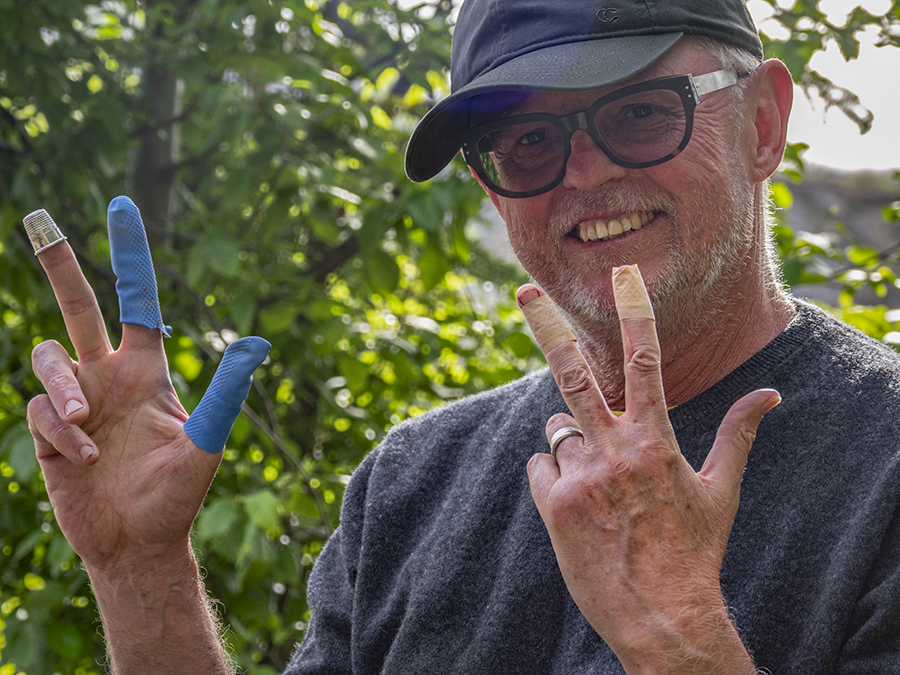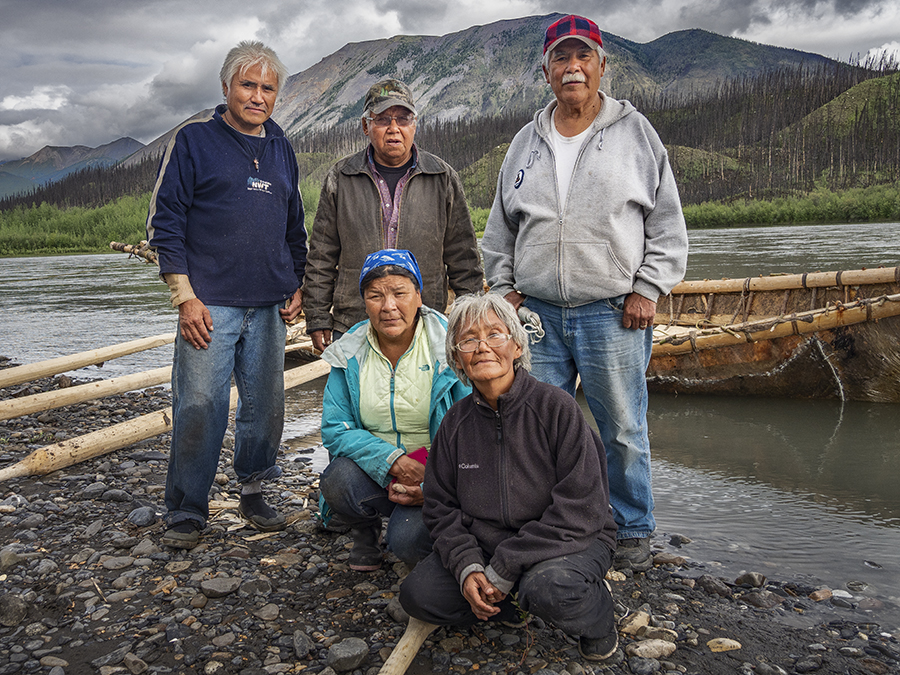
There have been Canadian versions of The Amazing Race, Big Brother, American Idol and WipeOut. Even Deal or No Deal and Who Wants to Be a Millionaire got (brief) Canadian spins.
The one big reality competition show that has never been tried on Canadian soil is Survivor.
Nahanni River of Forgiveness (premiering Sunday, August 9 on documentary Channel), is far, far more than a northern, aboriginal version of a TV survival competition. There is no million dollars at stake here. While twelve members of the Dehcho First Nations were chosen to participate in the journey, the “winners” represent a whole group of northern peoples, and, by extention, the rest of Canada. The river of forgiveness in the title is also something that runs deep and flows well beyond the players who are central to this drama.
Set in a the pristine and magnificent wilds of the Northwest Territories, this 78-minute feature follows a dozen members of the Dehcho Dene people on an ancient journey, one that was set in motion 15 years earlier.
In 2005, director Geoff Bowie met Dehcho FIrst Nations Grand Chief Herb Norwegian when they and others were traveling with Dr. David Suzuki on another project in the Northwest Territories. The issue then was the Berger Inquiry which paused the Mackenzie Valley pipline until further indigenous land claims could be settled.
Norwegian shared his vision then of what became the subject of this documentary. He wanted to do something that hadn’t been attempted in over 100 years but was once central to the lives of the Dene people: to build an animal-skin boat and sail it back 500 km from the northern hunting regions.
advertisement
For centuries, the Dene would travel north to the Nahanni headwaters to trap and hunt moose. The long voyage home was made by building a large boat out of moose hides and wood hewn from spruce trees. The practice ended when white settlers started opening schools and began colonizing the region.

“When colonialism began, they basically drove the faith out of the people,” Norwegian told Bowie. As he adds as one of the prominant voices in the documentary, the Chief saw re-creating this Nahanni voyage as a way to help his people “feel like Dene again” so they could “crawl out of the ashes of colonialism.”
Documenting the voyage, Norweigan suggested to Bowie, would act as a message of hope for his people as well as a means to a repaired relationship with Canada.
The task, however, was as arduous as it sounds. The 12 tribe members had to hunt and skin not just one moose but several, build a large frame for the boat as well as oars out of trees and then, with families and equipment in tow, head down a fast flowing river as soon as the ice breaks would allow.
Norweigan enlisted the help of the Mountian Dene who are skilled boat builders. They helped the Dehcho Dene construct a craft that could handle the swift-flowing river — for a while, at least. Not everything goes according to plan, but as Bowie says, “maybe every documentary needs something to go wrong.”

The adventure took place, pre-COVID-19, in 2018. Along the way we get to meet the participants and hear some eye-opening stories. Among the crew is Lawrence Nayally, a Yellowknife-based CBC Radio broadcaster who had his own formidable demons to exorcise on this journey. He’s looking for apologies as well as forgiveness. He’s also moved by the spiritual renewal of this river journey, enough to thank the moose for his sacrifice and see him as a part of the adventure.
Others include Lisa Williams, a Dene arts and craftswoman who has survived tremendous family upheaval as well as her own addiction issues. Rochelle Yendo, at the time just 19, was the first in her family to attend university. She confesses her own struggles with depression and anxiety even as she journeys down the river. Old and young, the women share their stories as they work their hands bloody stitching moose hides into a giant hull.
All, however, seem inspired and renewed by the incredible scenery, the wonders of the unspoiled land that Norweigen saw all along as a great tonic for the Dene people.
The documentary, as Bowie says, is “about a lot more than building a boat.” It’s the story of the people in the boat, of suicide attempts and residential schools, a grim history lesson from which forgiveness is as much asked for as demanded.
It is also apt viewing for these times when isolation has led to thinking and understanding about issues of racial equality, justice and the concept that Black Lives Matter. All Canadians need to watch documentaries such as this in order to be reminded that Indigenous Lives Matter, too.
The title of the documentary came to Norweigan, but Bowie, for one, understands the full weight of the word Forgiveness. “You know,” says the Ottawa native, “I always thought of Canada as being colonized, whether it was by the French or the English or the Americans economically. And then I found out that we’re the ones who have been colonizing.”
Nahanni River of Forgiveness premieres Sunday at 9 p.m. ET/PT on documentary Channel.






